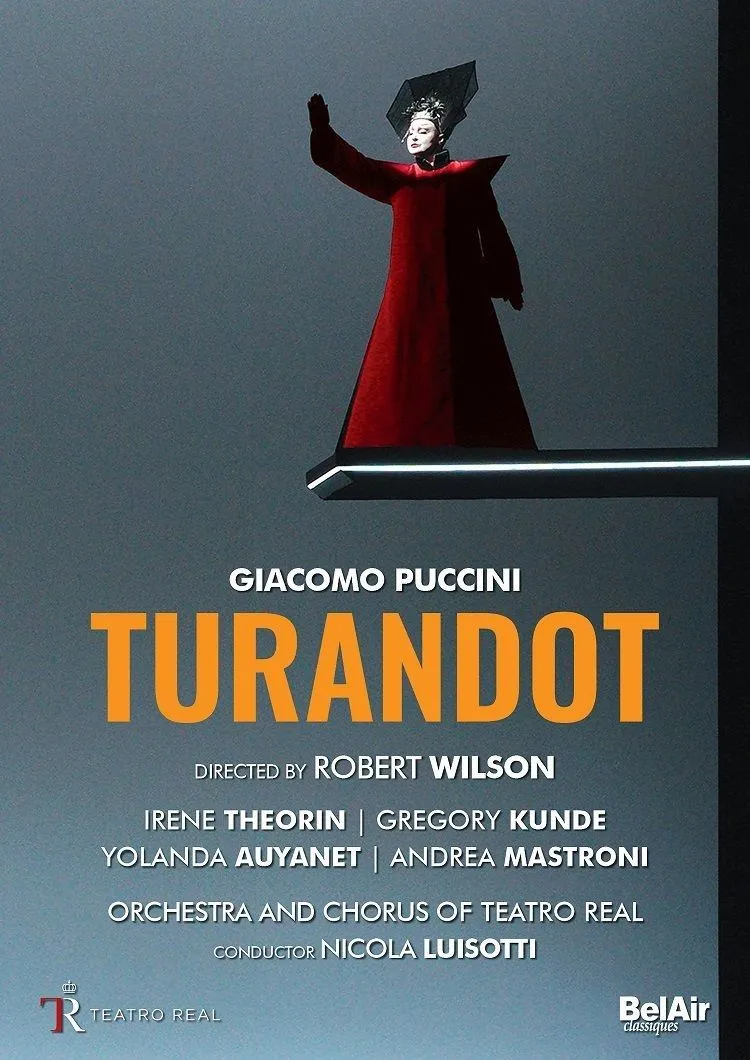
Puccini Turandot Iréne Theorin, Gregory Kunde, Yolanda Auyanet, Andrea Mastroni (voices); Orchestra and Chorus of Teatro Real/Nicola Luisotti; dir. Robert Wilson (Madrid, 2018) Bel Air Classiques BAC170 & BAC570 122 mins
The set is starkly minimalist. The characters are automaton-like, expressionless, and – save for the three Masks – largely immobile. The colourful lighting effects are mesmerising. All the hallmarks of a Robert Wilson production are present in this slow-motion Turandot for the Teatro Real in Madrid.
Does it work? Well, sort of. For any other Puccini opera this emotionless approach would make for a pretty excruciating couple of hours. For the anti-realist Turandot, however, it does have a certain logic. By the early 1920s, Puccini knew that to be mechanical was to be modern and used the Turandot subject’s stylised artificiality as a deliberate strategy to update his compositional approach. But this is also a work in which he appears to reflect on the present and the past, via the juxtaposition of the icy Turandot and the sentimental Liù. Thus, a performance in which everyone is a robot rather misses the point.
Iréne Theorin, noted for her Wagnerian roles, provides the requisite vocal heft as Turandot, and Gregory Kunde is an equally powerful Calaf: the riddle scene in Act II is musically thrilling. Yolanda Auyanet sings Liù prettily enough but, straitjacketed by the production, cannot hope to pull at the heartstrings. The orchestra and chorus of the Teatro Real under conductor Nicola Luisotti make a consistently impressive contribution to the musical whole.
Ultimately though, and through no fault of the performers, this feels like a park-and-bark performance masquerading as a ‘concept’. As such it left me rather cold. Though that was perhaps the intention.
Alexandra Wilson